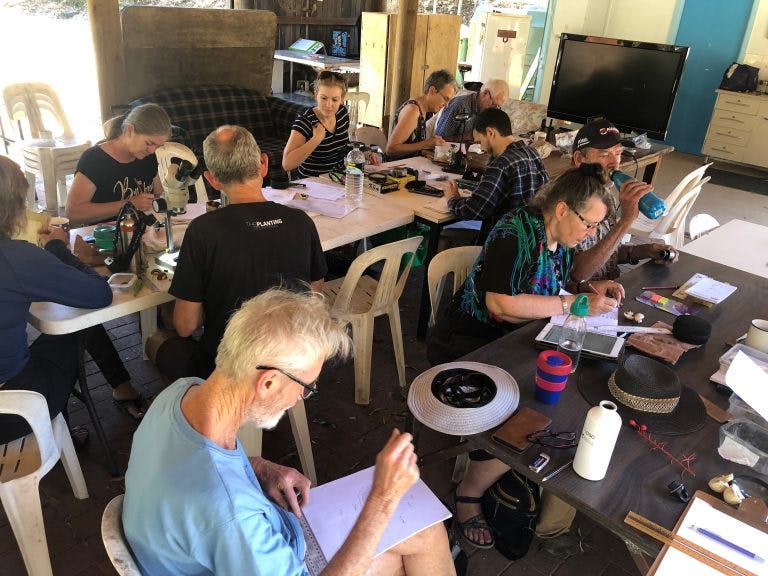Skip to content
driving nutrient cyclingproviding food for a variety of wildlifemaintaining the health of plants andsequestering carbon into soils.
study, research and contribute data on the taxonomy and ecosystem function of fungiraise awareness about the benefits of mycology (the studying of fungi)make this science easily accessible to the Queensland community
surveyingcollection of speciesisolationidentificationcultivationdata collection and recordingexperimental applications of beneficial fungi in the field and nurseriesproduct development using fungi
microscopyisolation of fungi from decaying wood and plantsculturing techniques
hypothesis testingexperimental designdata gathering, recording and presentation methodsdata assessment and statistical analysis
microcosms, Petri dishes and terrariumsnursery potsfield studies
Improved awareness of citizen science in mycological studiesEasily accessible communication and education about fungiGrowing citizen scientist community through collaboration and educationEngaging scientists with citizen scientists during training in gathering data using scientific methodsApplying scientific methodologies and equipment to the study of fungi Understanding the role of fungi in land restoration, plant health, cropping systems and revegetation effortsProviding methodologies and expertise in citizen mycology developing DIY mycology projectsAnticipated discovery of new species of fungi during foraysIsolating and cultivating native species of plant-beneficial fungi for use in nurseries and land restoration
Educational presentations by professional mycologistsFungal foraysRecording of data in the fieldBotanical photographySpecimen identification, preparation for submission to the Qld HerbariumRecording collection details and submission to iNaturalistIsolation and cultivation of fungi

 About
About
Project Rational
Fungi play critical roles in the functioning of healthy ecosystems
However, fungi are one of the least studied groups of organisms in Australia.
The total estimated number of fungi occurring in Australia is at around 250,000 species with only about 5% described so far. Fungi are often not considered in fauna and flora surveys, and mycology as a degree has not been provided in Australian universities since the 70s. Yet fungi are primary indicators of ecosystem health and offer tremendous solutions to pollution clean-up, ecological restoration, food security and climate change.


Citizen Scientist Training


Field and laboratory skills


Fungal study techniques


Experimental methodologies


Trials and documentation


Project Outcomes


Where and When
All activities take place at Woodfordia and other selected scheduled for the Saturday of the last weekend of each month and include
Want to print your doc?
This is not the way.
This is not the way.

Try clicking the ··· in the right corner or using a keyboard shortcut (
CtrlP
) instead.